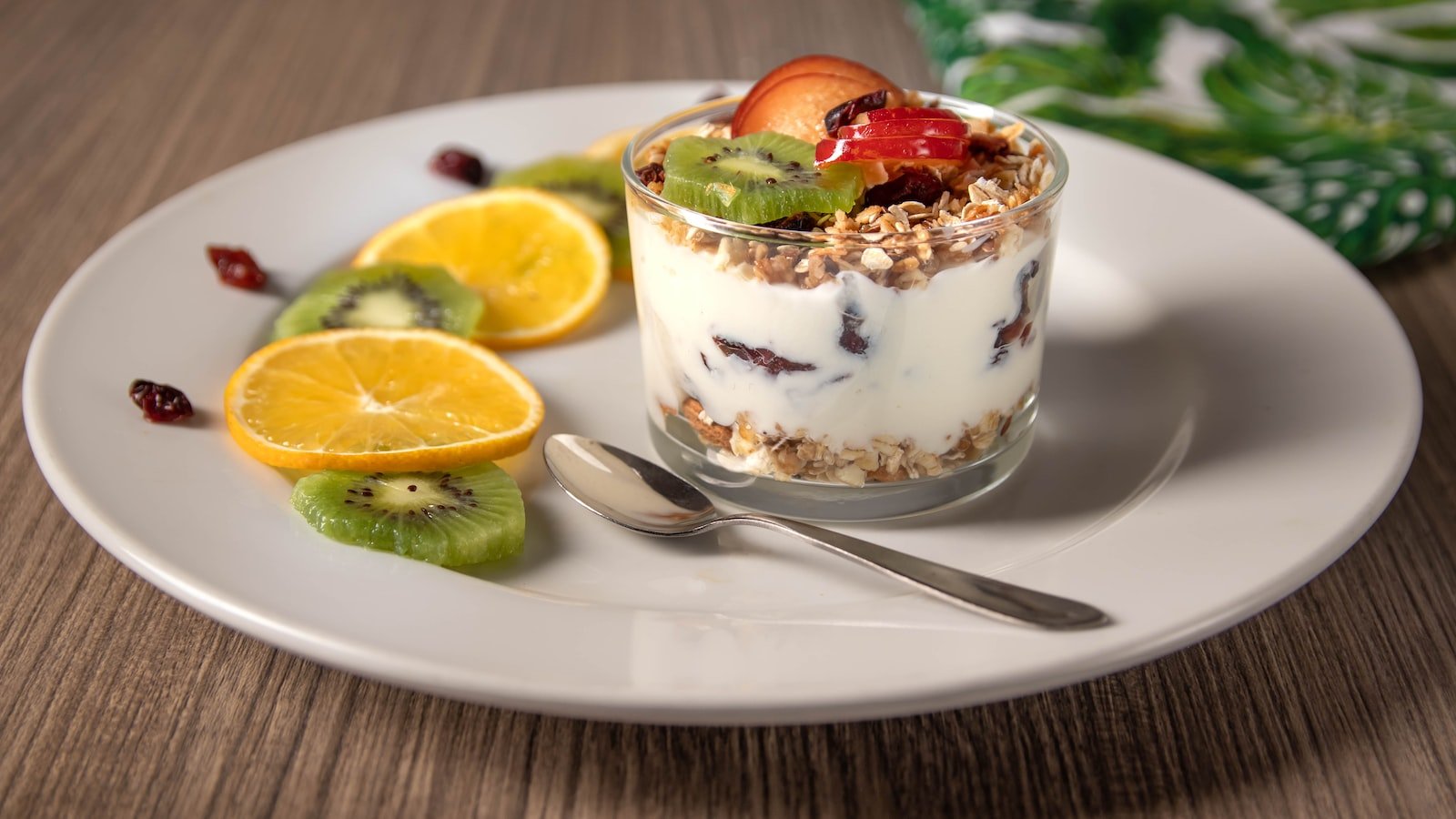Have you ever found yourself staring at the intimidating price tag of store-bought coconut yogurt, desperately wishing you had the secret to crafting this creamy delight in the comfort of your own home? Well, dear reader, consider your coconut-craving prayers answered. In this culinary adventure, we will embark on a journey to unveil the lush realm of homemade coconut yogurt – a nutritious and tantalizing treat that will revolutionize your breakfast routine or satisfy your late-night snack cravings. With just a handful of simple ingredients and a dash of patience, you too can become the master creator of this heavenly delicacy. So, roll up your sleeves, grab your blender, and prepare to dive deep into the enchanting process of making your very own coconut yogurt – indulgence has never tasted so wholesome.
Table of Contents
- Choosing the Right Ingredients for Homemade Coconut Yogurt
- Understanding the Fermentation Process: A Key to Perfecting Coconut Yogurt
- Tips and Tricks for Achieving a Creamy and Smooth Texture
- Adding Nutritional Boosters: Creative Ideas to Enhance Your Homemade Coconut Yogurt
- Incorporating Flavors and Toppings: Elevate the Taste of Your Nutritious Coconut Yogurt
- Q&A
- To Conclude

Choosing the Right Ingredients for Homemade Coconut Yogurt
When it comes to making your own homemade coconut yogurt, the right ingredients are crucial for achieving that perfect creamy and tangy flavor. Let’s dive into the essential components that will elevate your yogurt-making game:
1. Coconut milk: Start with a high-quality coconut milk that is thick and creamy. Look for one that doesn’t have any additives, preservatives, or sweeteners. Opt for organic if possible, as it tends to have a richer taste.
2. Probiotic culture: The key to transforming coconut milk into yogurt is the addition of probiotics. These friendly bacteria cultures are responsible for fermenting the milk and giving it that distinct tangy taste. Choose a high-potency probiotic blend that contains Lactobacillus or other yogurt-specific strains.
3. Sweetener (optional): If you prefer a slightly sweeter flavor, you can add a natural sweetener such as maple syrup, agave nectar, or coconut sugar. Remember to taste and adjust the sweetness according to your preference.
4. Thickener (optional): If you prefer a thicker yogurt consistency, you can add a thickener like tapioca starch or agar-agar. However, coconut milk naturally thickens during the fermentation process, so it might not always be necessary.
By carefully selecting these ingredients and combining them in the right proportions, you’ll be well on your way to creating a delicious batch of homemade coconut yogurt, perfect for enjoying on its own, adding to smoothies, or topping your favorite desserts. Get creative and experiment with flavors by adding fruits, nuts, or spices during the fermentation process. The possibilities are endless!

Understanding the Fermentation Process: A Key to Perfecting Coconut Yogurt
Embarking on the journey of creating the perfect coconut yogurt requires a deep understanding of the fermentation process. Fermentation is a magical transformation that occurs when beneficial bacteria feast on natural sugars present in coconut milk. This thriving ecosystem of bacteria converts those sugars into lactic acid, resulting in the unique tangy flavor and creamy texture that we associate with yogurt. Undoubtedly, mastering this process is crucial to achieve a tantalizing coconut yogurt that will leave your taste buds begging for more.
During fermentation, the bacteria responsible for producing coconut yogurt thrive in specific conditions. Controlling factors such as temperature, duration, and the type of starter culture used becomes imperative. The ideal temperature for fermentation typically ranges between 110-115°F (43-46°C), ensuring that the bacteria flourish and proliferate. Allowing the yogurt to ferment for approximately 12 to 24 hours will not only enhance its flavor but also result in a thicker, creamier texture.
- Starter Culture: The foundation of a successful fermentation process lies in selecting the right starter culture. Opting for commercially available probiotic capsules specifically designed for making yogurt is a popular choice. However, for a more unique twist, you can use a small quantity of store-bought coconut yogurt as a starter.
- Temperature Control: Maintaining a consistent temperature throughout the fermentation process is crucial. Investing in a yogurt maker or using alternative methods like a slow cooker or an Instant Pot can help you achieve the desired temperature and ensure optimal conditions for the coconut milk to transform into yogurt.
- Patience is Key: Remember, patience is a virtue in perfecting coconut yogurt. Although it can be tempting to rush the process, allowing ample time for fermentation is essential. This extra patience will reward you with a creamy, tangy delicacy that will make all your efforts worthwhile.
Mastering the art of fermentation is the ultimate secret in creating delectable coconut yogurt. By understanding the intricate details of this process and paying careful attention to every step, you can unlock a world of culinary possibilities and savor the luxurious flavors of homemade coconut yogurt.

Tips and Tricks for Achieving a Creamy and Smooth Texture
When it comes to creating delightful dishes, achieving a creamy and smooth texture is key. Whether it’s a velvety soup or a luscious dessert, mastering this technique can take your culinary creations to the next level. Here are some unique tips and tricks to help you accomplish that oh-so-desirable creaminess:
- Temperature is everything: Make sure your ingredients, especially liquids like cream or butter, are at room temperature before incorporating them into your recipe. This allows for better emulsification and smoother textures.
- The power of whipping: Whipping, whether it’s with a whisk or an electric mixer, can be a game-changer. To achieve a creamy texture, try whipping ingredients such as eggs, cream, or butters until they reach soft peaks. This will add air and volume, resulting in a lighter and smoother consistency.
- Mindful cooking: Pay attention to the cooking process. Slow and gentle heat is often the key to achieving a creamy texture. Take your time and let the ingredients meld together harmoniously. Remember, patience is a virtue in the culinary world!
- The secret of starches: Incorporating a starch such as cornstarch or flour can help thicken your sauces or stews, giving them a creamy and velvety texture. Make a slurry by dissolving the starch in cold liquid before adding it to your recipe, ensuring a lump-free finish.
- The magic of emulsifiers: Emulsifying ingredients like eggs or mayonnaise can create a smooth and creamy texture. The fats in these ingredients act as stabilizers, preventing separation and providing a luxurious mouthfeel. So don’t shy away from adding a dollop of mayo to your dressings or sauces!
Remember, achieving a creamy and smooth texture is all about experimentation and finding the techniques that work best for your recipes. With these creative tips and tricks up your sleeve, get ready to take your dishes to a whole new level of deliciousness!

Adding Nutritional Boosters: Creative Ideas to Enhance Your Homemade Coconut Yogurt
Enhance your homemade coconut yogurt with these creative ideas to give it a nutritional boost. By adding a variety of nutritious ingredients, you can take your yogurt to a whole new level of flavor and health benefits. Here are some unique suggestions to inspire you:
- Fresh Fruits: Boost the vitamins and minerals in your coconut yogurt by adding a colorful array of fresh fruits. Berries, such as strawberries, blueberries, or raspberries, not only add a burst of flavor but also provide antioxidants and natural sweetness. Sliced bananas, juicy mangoes, or chunks of pineapple bring a tropical twist and provide essential vitamins.
- Seeds and Nuts: Add a crunchy texture and a dose of healthy fats by sprinkling your yogurt with a variety of seeds and nuts. Chia seeds, flaxseeds, or hemp hearts are excellent sources of omega-3 fatty acids and fiber. Almonds, walnuts, or pecans offer additional crunch and provide essential minerals like magnesium and zinc.
- Superfood Additions: Take your coconut yogurt to a supercharged level by incorporating superfoods. Matcha powder, spirulina, or wheatgrass can give your yogurt a vibrant green color while boosting its nutritional value with antioxidants and detoxifying properties. Maca powder, cacao nibs, or goji berries add a touch of exoticness and provide energizing vitamins and minerals.
Experiment with combinations and quantities to find your favorite flavor profile. Get creative and enjoy the process of customizing your homemade coconut yogurt with these nutritional boosters!
Incorporating Flavors and Toppings: Elevate the Taste of Your Nutritious Coconut Yogurt
Once you’ve mastered the art of making your own nutritious coconut yogurt, it’s time to take it to the next level by incorporating exciting flavors and delicious toppings. These additions not only enhance the taste of your yogurt but also make it a sensory delight. Get ready to embark on a flavorful journey with these creative ideas:
Flavor Infusions:
- Vanilla Bean Dreams: Indulge in the smooth and aromatic goodness of real vanilla beans by adding a fresh vanilla bean pod to your yogurt during the fermentation process.
- Tropical Paradise: Give your coconut yogurt a tropical twist by blending in fresh fruits like ripe mangoes, juicy pineapples, or tangy passionfruit. The vibrant flavors will transport you to a sunny beach.
- Spiced Sensations: Warm up your taste buds by incorporating a touch of warmth and spice. Add a pinch of cinnamon, a dash of cardamom, or a sprinkle of nutmeg for a fragrant and cozy yogurt experience.
Irresistible Toppings:
- Crunchy Nutty Bliss: Sprinkle your yogurt with a mix of toasted coconut flakes, chopped almonds, and crushed walnuts for a delightful crunch and added protein.
- Sweet Indulgences: Drizzle some honey or maple syrup on top of your coconut yogurt to add a touch of natural sweetness. For a decadent twist, sprinkle dark chocolate shavings or cacao nibs on top.
- Fruit Medley: Create a colorful explosion of flavors by topping your yogurt with a variety of fresh berries, sliced bananas, or pomegranate arils. Not only will it look visually appealing, but it’ll also provide an extra burst of vitamins and antioxidants.
With these flavor infusions and irresistible toppings, your nutritious coconut yogurt will become a palate-pleasing treat that will keep you coming back for more. Get creative in the kitchen and enjoy the endless possibilities of elevating the taste of your homemade yogurt!
Q&A
Q: What is the process for making coconut yogurt at home?
A: To make coconut yogurt at home, simply blend coconut milk with a starter culture, such as probiotic capsules or store-bought yogurt. Allow the mixture to ferment at room temperature for 24-48 hours until tangy and thickened.
Q: Can I use canned coconut milk for this recipe?
A: Absolutely! Canned coconut milk works perfectly fine for making coconut yogurt at home. However, make sure to choose a brand without any additives or preservatives for a healthier version.
Q: How crucial is the starter culture in making coconut yogurt?
A: The starter culture plays a vital role in converting the coconut milk into yogurt. It contains beneficial bacteria that initiate the fermentation process, resulting in a tangy and probiotic-rich yogurt.
Q: Can I use a yogurt maker or Instant Pot instead?
A: Yes, using a yogurt maker or Instant Pot is an excellent option for maintaining a consistent temperature throughout the fermentation process. Both appliances provide an ideal environment for making coconut yogurt at home.
Q: How long can I store homemade coconut yogurt?
A: Homemade coconut yogurt can be stored in an airtight container in the refrigerator for up to 1-2 weeks. However, it is best consumed within the first few days for the freshest taste and maximum probiotic benefits.
Q: Can I flavor my coconut yogurt?
A: Absolutely! After the fermentation process, you can add natural flavors like vanilla extract, fruits, or sweeteners of your choice to enhance the flavor of your coconut yogurt. Experiment with various combinations to find your favorite!
Q: Can I use homemade coconut milk instead of store-bought?
A: Definitely! Homemade coconut milk works perfectly fine for making coconut yogurt. It provides a fresh and more natural taste compared to store-bought versions. Just ensure it is strained properly to remove any solids for a smooth yogurt texture.
To Conclude
And there you have it, a simple and creative way to whip up your own nutritious coconut yogurt right in the comfort of your own kitchen. No longer are you bound by the constraints of store-bought options with questionable ingredients and high price tags. With just a few simple steps, a dollop of patience, and a whole lot of love, you can now savor the velvety smoothness and delicate tanginess of homemade coconut yogurt.
Remember, the possibilities are endless when it comes to customizing your yogurt. Experiment with a variety of flavors by adding fresh fruits, crunchy granola, or a drizzle of honey. Incorporate superfoods like chia seeds or flaxseeds for an added nutritional boost. Let your culinary creativity run wild and indulge in the pleasure of crafting a truly personalized yogurt experience.
Not only does making your own coconut yogurt give you complete control over the ingredients, but it also allows you to reduce waste by reusing or recycling the jars and containers you already have. Take a step towards sustainability and enjoy the satisfaction of contributing to a healthier planet, one delicious spoonful at a time.
So, whether you’re a dedicated health enthusiast, a culinary adventurer, or simply someone looking to explore a new realm of homemade delights, this guide has equipped you with all the knowledge you need to make your very own delectable coconut yogurt. Embrace the art of DIY, nurture your well-being, and savor the delightful moments of creation. Cheers to your culinary masterpiece!
As an affiliate, my content may feature links to products I personally use and recommend. By taking action, like subscribing or making a purchase, you’ll be supporting my work and fueling my taco cravings at the same time. Win-win, right?
Want to read more? Check out our Affiliate Disclosure page.